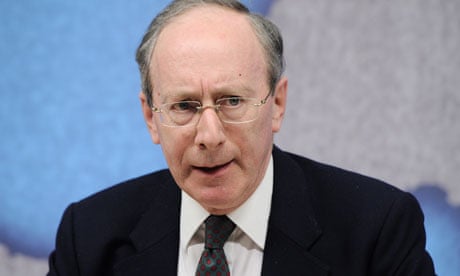Commonwealth leaders have been accused of behaving disgracefullly after they declined to publish an "Eminent Persons Group" (EPG) reportcalling for the 54-nation body to improve its handling of human rights.
The atmosphere at the Commonwealth Heads of Government meeting (CHOGM) soured on Saturday when leaders were warned that this year's summit would be remembered as a failure.
Tempers rose after Commonwealth leaders bowed to pressure from South Africa and Namibia and declined to publish the EPG report, which proposes the creation of a new commissioner on the rule of law, democracy and human rights.
The southern African nations, whose concerns were shared by India, feared what one Commonwealth source described as the "imperial overtones" in the report's 106 recommendations. The commissioner would be given a mandate to speak out on human rights, unlike the secretary general of the Commonwealth who can only condemn abuses with the approval of foreign ministers.
Sir Malcolm Rifkind, the British member of the group, described the refusal of the leaders to publish the report as a "disgrace". The former foreign secretary, whose group decided to publish the report on its own, told a press conference in Perth: "The Commonwealth faces a very significant problem. It's not a problem of hostility or antagonism, it's more of a problem of indifference. Its purpose is being questioned, its relevance is being questioned and part of that is because its commitment to enforce the values for which it stands is becoming ambiguous in the eyes of many member states.
"The Commonwealth is not a private club of the governments or the secretariat. It belongs to the people of the Commonwealth."
Abdullah Ahmad Badawi, the former prime minister of Malaysia who chaired the group, warned that the summit would be seen as a failure. "There is no doubt … that this CHOGM is expected to deliver meaningful reforms of the Commonwealth. If this CHOGM does not deliver such reforms, it is our duty to sound the caution to you that this CHOGM will be remembered not as the triumph it should be, but as a failure."
The members of the group were particularly angry because the leaders had asked the Commonwealth Ministerial Action Group (CMAG) to step up its monitoring of human rights. The CMAG, made up of Commonwealth foreign ministers, were asked to intervene when Commonwealth nations fail to observe basic democratic principles.
Badawi said: "The reform arrangements of CMAG, as the chairman of CMAG has indicated, will not fill the gap. After very careful study over 16 months, the EPG is convinced that there is an urgent need for bold initiatives to reform and strengthen the Commonwealth as a beneficial force for the future."
The group argues that the Commonwealth has a reasonable record in ejecting members where an elected government is overthrown in a military coup. But it says the Commonwealth fails to live up to a declaration, signed in Harare, to condemn "severe and persistent violations of democracy and human rights".
British sources indicated that British prime minister David Cameron had joined forces with Julia Gillard, the Australian prime minister, and Stephen Harper, the Canadian prime minister, to press for the publication of the report. But the Commonwealth works by consensus, which means that just one country could block the publication.
One British source said: "We were trying to apply pressure, as were Australia and the Canadians. But it is an organisation that works by consensus."
Harper has voiced his unease about the lack of respect for human rights by saying that he will boycott the next CHOGM summit, which is due to be held in Sri Lanka in 2013. The Sri Lankan government faces allegations of war crimes committed during the country's 26-year civil war.
Senator Hugh Segal of Canada said: "Clearly there are some people at this meeting for whom silence is the best option. Would silence have been a way to bring apartheid to an end?"
Cameron had earlier praised the report by the EPG and said he hoped progress would be made. "The EPG report will strengthen those values, particularly by having a charter setting out the rights, the freedoms, the democracy that we all believe in, and I think that is important," the British prime minister said.
